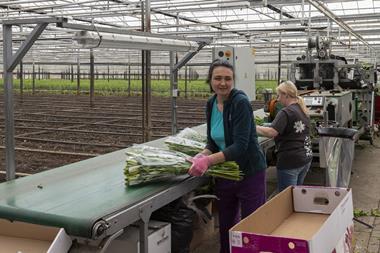NETHERLANDS - PGGM Investments, the Dutch pensions asset manager, will in future scrutinise all real estate investments under environmental, social and governance (ESG) terms as part of its strategy to encourage all companies to abide by responsible investment principles.
Marcel Jeucken, manager for responsible investment at PGGM, said the move is an extension of the body's responsible investment policy which was first outlined in 2006.
Now, however, a substantial research project, split into six sections, is being conducted behind the scenes to assess the ESG status of every listed and private equity real estate company and fund in Europe, the US and Asia, so the company can decide which investments they see opportunities in.
Officials say the reason is not only to continue to pursue responsible investment and improved governance practices but because they believe firms acting with ESG in mind will deliver better performance to bottom line accounting too.
"On the one side, we think ESG adds to our bottom line but we have a role to play as a responsible investor too," said Jeucken.
"Based on work we did last year - reviewing our portfolio to understand where the risks and opportunities are, both in listed and in the private space - we are working on a research project to ask all our external managers what their policies are," he added."
The firm is due to publish its own annual responsible investment report in a week's time, in its bid to show transparency on investments - a practice it hopes other investors and companies will encourage and themselves adopt.
However, trying to make a difference and apply ESG to real estate is a much tougher task than might be expected for PGGM as the assets are invested indirectly and officials cannot therefore dictate how buildings should be changed to cope with climate change, for example, according to Mathieu Elshout, senior investment manager for private equity real estate.
"Because we are indirectly invested, there is no direct link to improving performance in certain buildings," said Elshout. "It means the way we manage this differs somewhat on public and private. What we are trying to accomplish is to make managers aware of the importance of responsible investment.
"We sold off companies in the last year that did not follow a clear transparent path, so governance is an issue on which we will act. What we will do in the environmental space is incorporate this factors into proprietary models and actually expect companies with a strong responsible investment policy to perform better than those who do not have a policy. There are high expected rents and low yields in these companies that do responsible investment.
"We are seeing regulations move, in particular, in relation to CO2 emissions and waste management. So there is a clear impetus for us to act on that. We are in the process of trying to get an initial estimate on how green we are in that space," added Elshout.
The teams led by Hans Op 't Veld, head of listed real estate, and Guido Verhoef, head of private real estate, will attempt to use positive engagement and investor voting to change corporate policy over their corporate governance arrangements and the make-up of their boards, for example, as well as influence human rights and labour conditions, alongside environmental issues.
The asset manager could use the threat of exclusion if it deems it necessary to do so, as witnessed recently when two companies were removed from the portfolio of listed real estate investments because of concerns about their ESG policy.
Part of its own drive has seen PGGM team up with APG and USS in recent weeks to commission a major research project on ESG in real estate and how common ground might be established. (See earlier story produced by sister publication IPE Real Estate: APG makes sustainability call to pension funds)
Elshout pointed out that one of the difficulties many real estate investors face is the differing standards on issues such as climate change and sustainability that companies adhere to across regions.
"What we are also trying to do is get some comparability within the portfolios," said Elshout. "Different countries have different standards and statistics. So we are trying to find a common denominator. The UK is ahead of the pack, as is Australia, but other countries are lagging behind. The US and continental Europe are improving.
"What we have been focusing on is the governance, as this is the most apparent issue. Now we are looking at environmental issues, as CO2 is a big issue," continued Elshout.
"We feel companies should report on it and be aware of the fact that the emissions will be charged immediately, if not in a couple of years' time. And it will have an impact on tenants' decisions too. What is important at this stage is to measure where we are. That is the first step and from that we can engage in the companies and focus on improving it," he added.
PFZW, the €74.4bn pension fund for the healthcare sector, is the largest client of PGGM Investments. The strategic allocation to real estate for the PFZW pension fund is 15%, divided equally between listed and private equity real estate, and all investments are made indirectly through companies or through funds held by external asset managers.
If you have any comments you would like to add to this or any other story, contact Julie Henderson on + 44 (0)20 7261 4602 or email julie.henderson@ipe.com












